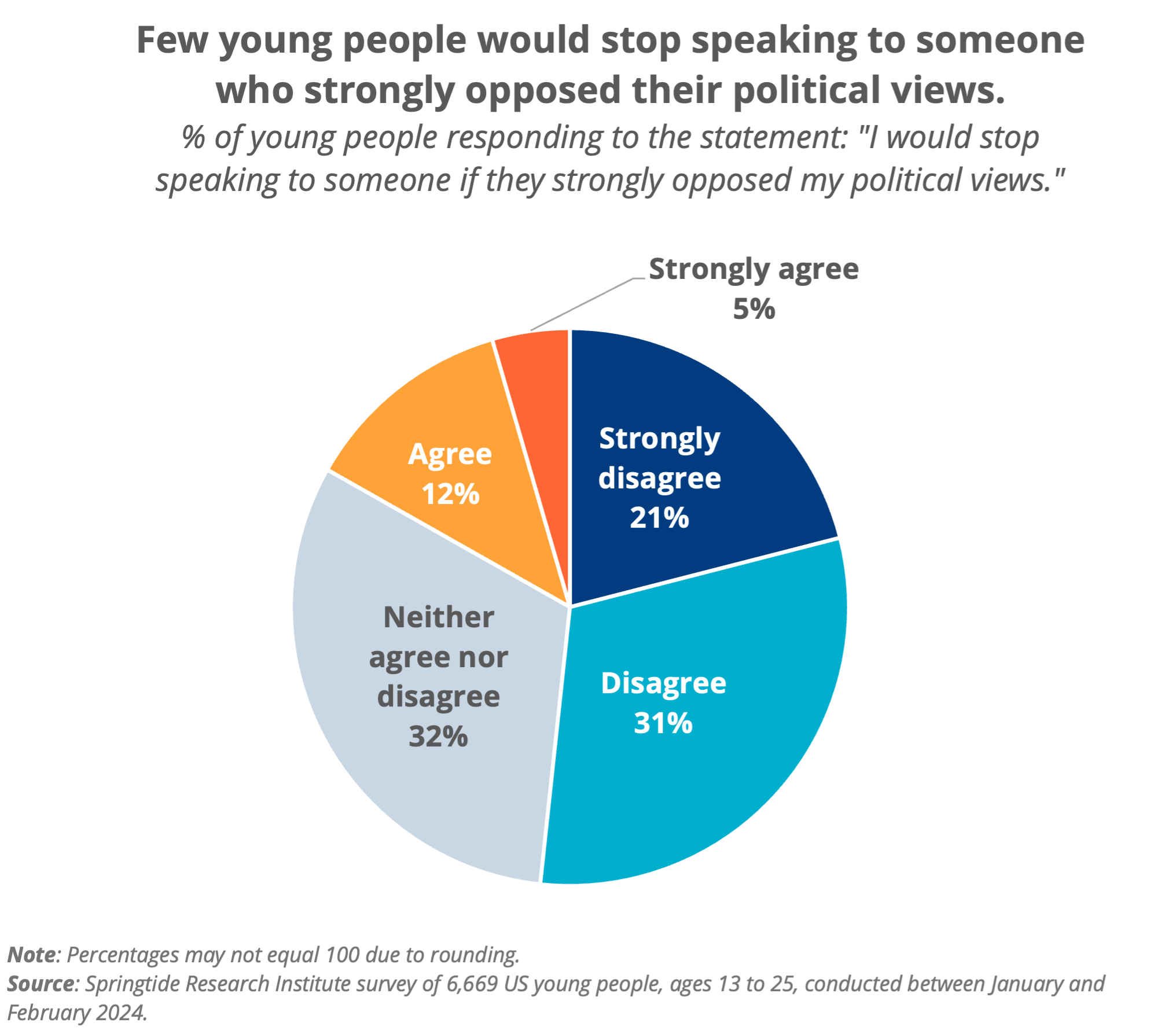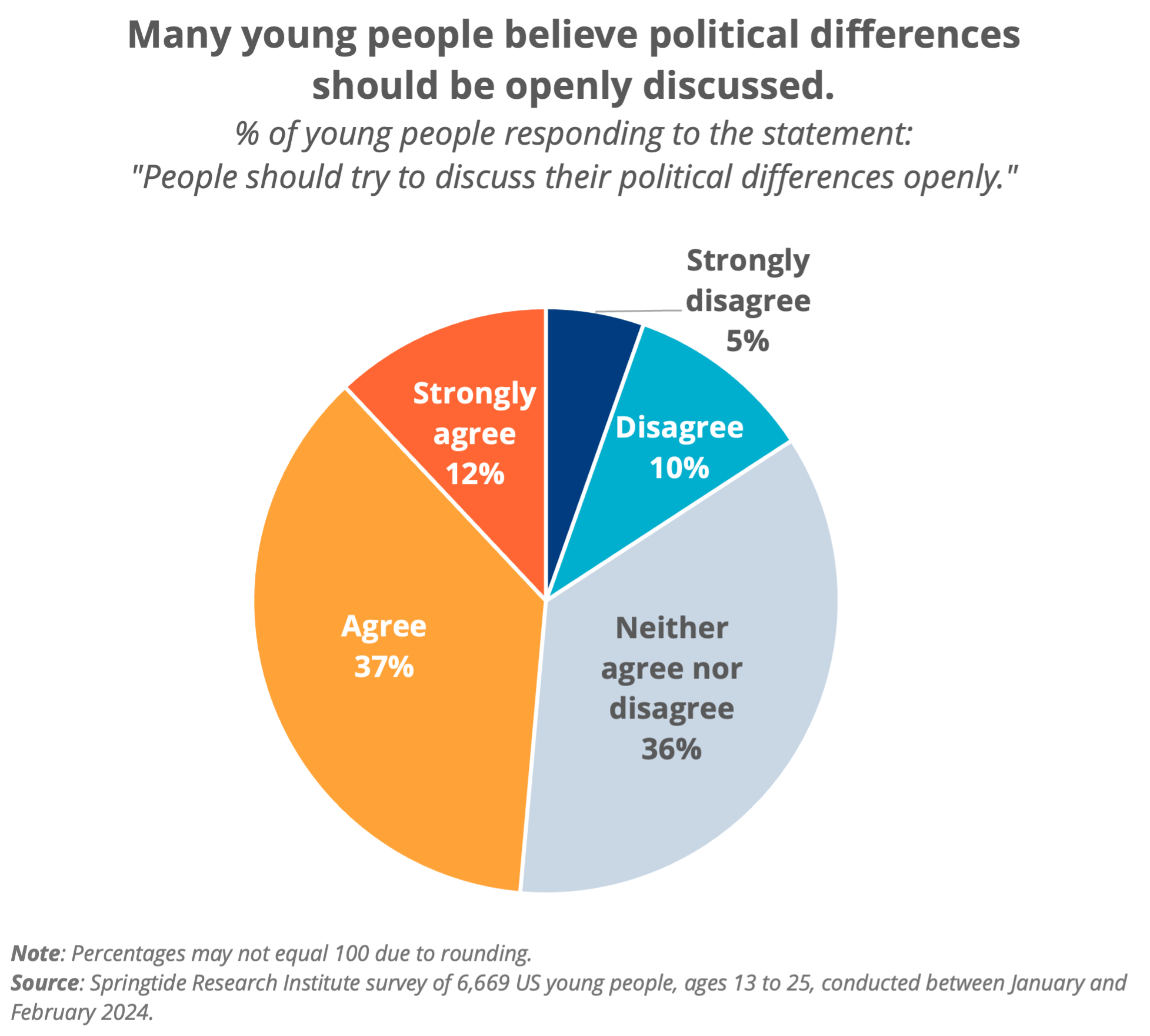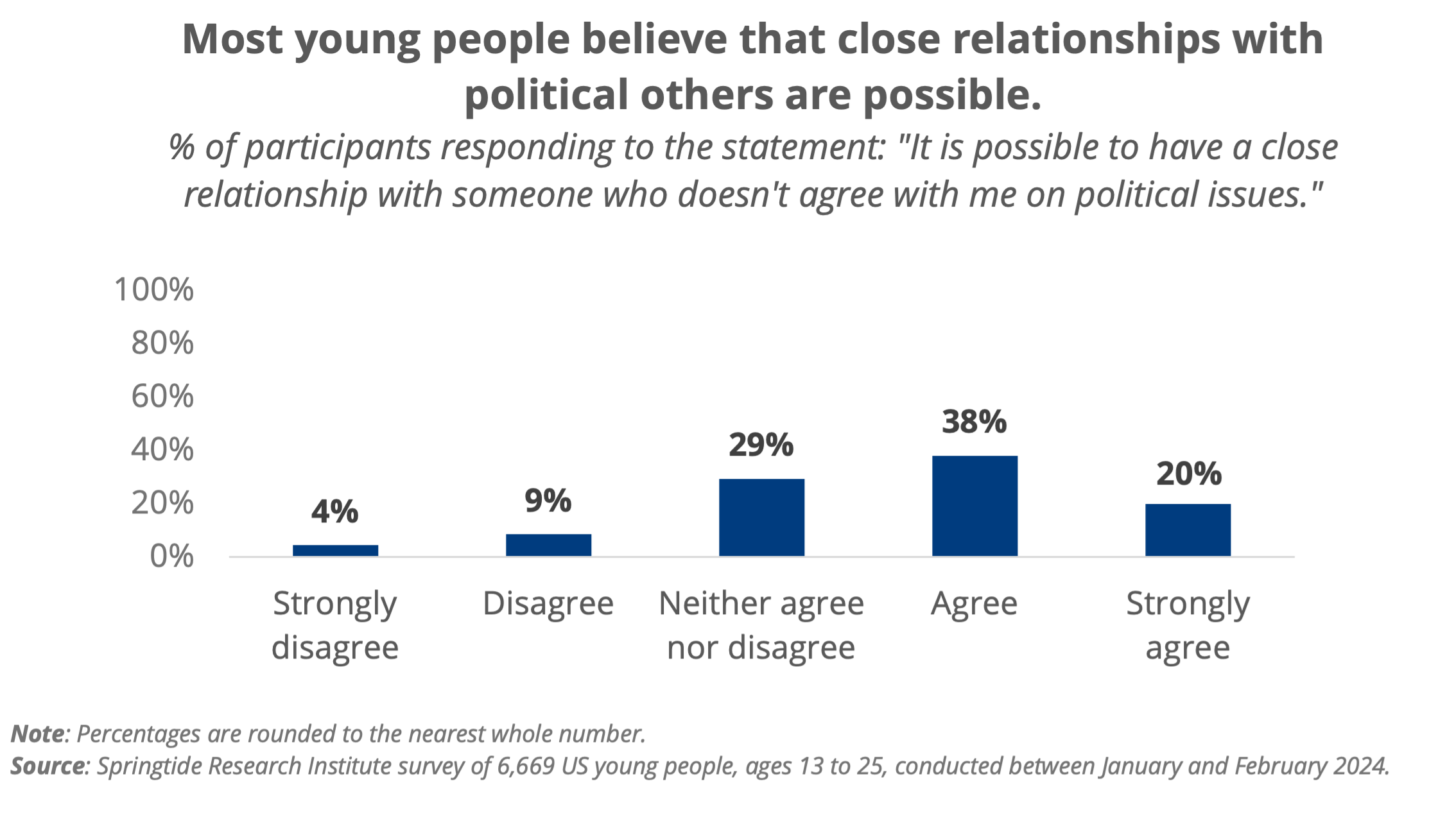
The Majority of Young People Won’t End a Friendship over Politics
Can Young People Have Lasting Relationships with Those Who Have Different Political Views?
Most young people, regardless of political ideology, say they would not let political differences get in the way of their relationship with a friend or family member.
In 2024, Springtide surveyed 6,669 young people, ages 13 to 25, and interviewed 76 of them to learn how they feel about politics. More than half (52%) disagree or strongly disagree when presented with the statement: “I would stop speaking to someone if they strongly opposed my political views.” Just 12% agree, and only 5% strongly agree.

In our interviews, some young people explain that they care more about people than political issues. Reagan (22, conservative) says: “I don’t wanna offend people. I care more about loving people and caring about people than I do about my own views.” Rashida (18, moderate) points to factors other than politics that maintain relationships: “It’s not about your political beliefs that will make you [a] friend; it’s about other things you have in common.”
Young people we interviewed who said they would end a relationship over political opposition recall instances where they felt political views revealed underlying morals. Ileana (21, moderate) explains: “I do try to have an objective opinion on where people stand…. There’s just certain things, like human rights.… that can’t be justifiable, you know, from just a moral standpoint.” Kailyn (18, extremely liberal) shares, “Depending on their views and their moral values, [I] wouldn’t wanna be friends with someone who doesn’t value the same kind of rights that I do.”
About Half of Young People (49%) Believe That Political Differences Should Be Discussed Openly
While 37% of young people agree and 12% strongly agree with the statement “People should try to discuss their political differences openly,” a sizable proportion—36%—neither agree nor disagree. The remaining 15% disagree or strongly disagree with this more open approach to discussing political differences.

When asked about conversations involving political disagreement, young people express appreciation for “[learning] something from each other’s perspective” (Ethan, 25, extremely conservative) and “[respecting] each other’s differences [to] understand them and [gain] a full picture” (Zara, 17, liberal).
Young people who hesitate to openly discuss political differences, on the other hand, anticipate the risk of combative language. David (17, moderate) says: “Whenever I just try to bring up anything, they automatically hit me with… ‘This is better than what you’re thinking.’… ‘What you’re thinking is crazy.’” Others don’t want to discuss issues where they see no compromise. Sofia (19, extremely liberal) explains: “If you don’t agree with someone’s human rights, I don’t wanna give you my time.… Other conversations [are] definitely situational, where you have to learn why they’re like that, why they agree with that.”
Young People Believe That Close Relationships with People Who Hold Different Political Views Are Possible
The majority of young people (58%) agree or strongly agree with the statement: “It is possible to have a close relationship with someone who doesn’t agree with me on political issues.”

We learn from young people that relationships with others whose political views differ are neither impossible nor destined to end. While polarization might feel pervasive, our interviewees show how young people make efforts to forge relationships beyond politics:
We can agree [or] we can disagree, but still have good communication. Maybe…my friendship with them wouldn’t be as deep as [with] other people.
Michelle, 24. slightly conservative
Something big…something that was super confrontational…I would probably only say to a pretty close friend.
James, 21, liberal
See our latest work on how young people are navigating civic life. Order Cultivating Care and receive our newest insights on how and why young people create and sustain patterns of care in their civic lives, and how adults can support them.
Note: All names are pseudonyms. See question wording and survey responses in the topline survey results and review methodology here.



